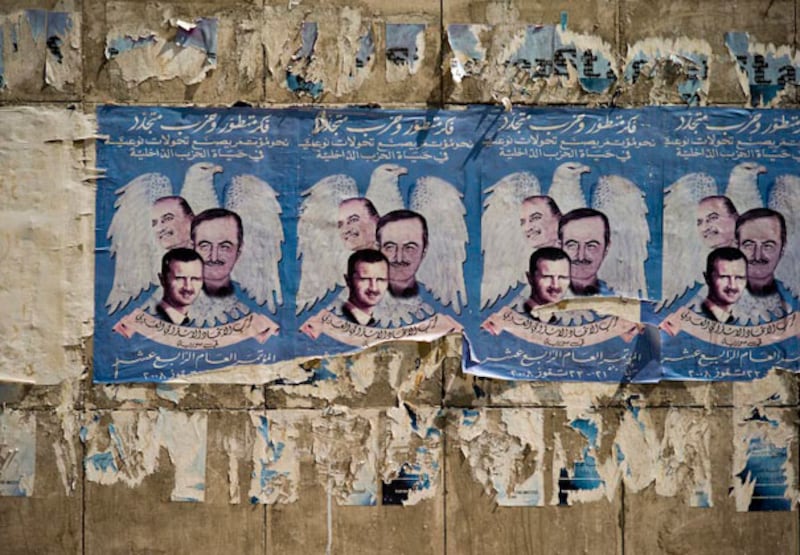
On Monday, the US military announced that it conducted an air strike from Iraq into Syrian territory. The premise of this attack was that Syria’s inability or unwillingness to prevent terrorists from crossing into Iraq made it necessary for America to take matters into its own hands.
This is nothing new for American Foreign Policy post 9-11; the Bush Doctrine makes it quite clear that the USA will intervene to stop terrorism when other states cannot or will not do so. Even Senator Obama supports this nuance of President Bush’s otherwise lackluster strategy, stating that he would take matters into his own hands if Osama Bin Laden were found sheltered by the Pakistani government.
But Monday’s attack on Syrian soil highlights a deep problem that threatens the possibility of a responsible withdrawal. “The war in Iraq is not limited to Iraq,” begins a 2007 report (PDF) by Patricia Weiss Fagan of Georgetown’s Institute for the Study of International Migration. “[The Iraq War] has been exported in many forms and has profoundly affected dynamics throughout the Middle East region.” With a wistful notion of control on one side and a complete lack of control on the other, Washington and Damascus have transformed the Syrian border into an axis of regional instability.
The fact is that Syria made substantial efforts to check the flow of illicit traffic across its border. Sadly, this task has proven far too expensive and far too demanding for a country whose gross domestic product is less than a third of America’s annual Iraq-war budget. One could look at the proposed fence between Mexico and Texas to understand the enormous cost and challenges of securing a barren desert border; it’s impractical, even for a country as wealthy and powerful as the USA.
Last month, I travelled to Syria to visit my Iraqi friends who had recently fled their homes. The journey shattered my preconceptions about Syria and my ignorant notions about life as a refugee. There are no camps or tents or lines for food, just ghettos with apartments and shops where women covered in black shop for bras like everyone else. The situation seems strangely normal, except that a pervasive sense of hopelessness grips the community—nearly everyone is out of work. Above all, I was shocked when my Iraqi hosts chartered a taxi to a desert canyon village, where thousands of Syrian and Iraqi Christians celebrated the life of Saint Thecla with fireworks and whiskey (a lively combination to say the least!).
The Syrian economy is in shambles. But aside from the country’s obvious problem (cutting off its own invisible hand with isolationism), Syria also shoulders the burden of America’s war. Since the fighting began in 2003, roughly one million Iraqis have fled to Syria, most of whom have taken up residence in the ghettos of Damascus. To put things in perspective, if the USA were to absorb the same percentage of refugees that Syria has accommodated, then 17 million refugees would be eating, sleeping and competing for jobs in America!
The following photographs were taken during the author’s trip to Syria. "These snapshots revealed to me a human side of the Iraqi refugee problem that I never would have predicted from the reports of mainstream media,” Brownfield says. The journey shattered my preconceptions of what it means to live in Syria and to be a refugee from Iraq."
Click image to view media gallery.

Arab hospitality aside, Syria’s political decision to provide shelter and social services to Iraqi citizens was not without economic consequence. Housing prices skyrocketed under increased demand, inflation soared and job openings vanished, despite the fact that most Iraqi refugees are not permitted to work. At first, Syria’s economy gained a small boost, but that quickly faded into a recession when the wealthy Iraqis exhausted their life savings. Hundreds of thousands of undocumented inhabitants spurred the formation black markets while Syrian hospitals and schools stretched beyond capacity. In this ongoing economic crisis, is it any wonder that the Syrian government is incredulous about American demands to build up a wall? Perhaps Mr. Gorbachev would like to field that question...
Syria and Iraq have been good neighbors for a very long time. Before this war, the last person to advocate so strict a division between the two countries was Saddam Hussein when he struggled to consolidate power in 1979.
There are no camps or tents or lines for food. The situation seems strangely normal, except that a pervasive sense of hopelessness grips the community—nearly everyone is out of work..
During my trip to Syria, I interviewed Philippe LeClerc, the deputy representative of the UN High Commissioner for Refugees in Damascus. Among other things, LeClerc spoke about the measures being taken to address the humanitarian challenge of providing aid to a million victims of war.
“For obvious reasons,” LeClerc explained, “the US is contributing more than its normal share [to the UNHCR mission in Syria].” The US contributes roughly fifty percent of the $90 million budget. But LeClerc believes that the US would give more support to the refugee problem if the roadmap to peace hadn’t hit a political roadblock.
“It’s not that the UN couldn’t effectively implement more funding,” LeClerc cautioned, but the US won’t contribute more money until, “other countries increase ‘their share’ of the burden.” Lamentably, potential donor countries equate supporting Iraqi refugees to providing tacit support for the war, which makes raising more funding as unlikely as American diplomacy without preconditions. To make matters worse, Iraq has spent little, if any of its $80 billion treasury surplus on the repatriation of its own people.
Every soldier knows that when giving first aid to a gunshot, there are always two wounds to treat—the point of entry and the exit wound. This is the case with the Iraq War—the bullet may have entered through Baghdad, but the exit wound is in Syria. The Surge has stemmed the blood loss from the land between two rivers, but upstream from Mesopotamia, the patient still bleeds. Regional stability and a responsible withdrawal from the Middle East will absolutely require the next President to treat both wounds.
Cross-border raids may be the right answer for bagging Bin Laden, but without addressing the systemic refugee problem, this short-sighted tactic in Syria amounts to nothing more than poking our fingers into a bullet wound after having pulled the trigger. A shred of human decency and a serious package of financial aid for the hosts of our Iraqi friends would be far more useful toward ending this conflict.





